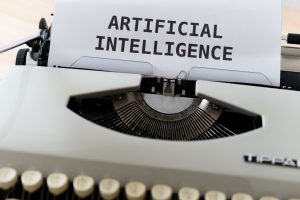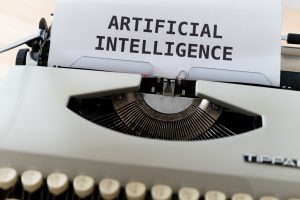Month: September 2021
#AIinEd – Pontydysgu EU 2021-09-24 13:11:11
 From the UK Open Data Institute:
From the UK Open Data Institute:
This week, the UK government launched its first ‘National AI Strategy’, which aims to position the country as the ‘best place to live and work with AI’. The 10-year plan includes things like investing in access to data, using AI to benefit all sectors and regions (including using it for public benefit and towards goals like net zero), and governing data effectively.
AIED2022 GENERAL CALL FOR PAPERS
The 23rd international conference on Artificial Intelligence in Education will take place between 27-31 July, 2022 at the University of Durham, UK and virtually. AIED2022 will be collocated with EDM2022.
The AIED2022 theme will be:
AI in Education: Bridging the gap between academia, business, and non-profit in preparing future-proof generations towards ubiquitous AI.
The conference sets the ambitious goal to stimulate discussion on how AI shapes and can shape education for all sectors, how to advance the science and engineering of intelligent interactive learning systems, and how to promote broad adoption. Engaging with the various stakeholders - researchers, educational practitioners, businesses, policy makers, as well as teachers and students - the conference will set a wider agenda on how novel research ideas can meet practical needs to build effective intelligent human-technology ecosystems that support learning.
For more information see the IAIED website.
#AIinEd – Pontydysgu EU 2021-09-20 16:58:58

Photo by Markus Winkler on Unsplash
Empowering Learners for the Age of AI is a free, international online conference, organised by part of a national team from Australia representing leading researchers in the role of data, analytics and AI in learning, to empower both learners and teachers. They are seeking a public conversation to engage productively with societal infrastructure powered by data, analytics and AI. The questions for the conference include:
- What’s actually happening with AI and how is it changing classrooms, teaching, and learning?
- How can data, analytics and AI be used not to disempower or automate work, but to empower learners and professionals?
- How must modern knowledge systems (such as schools, universities, corporate training and development, government agencies) change to prepare people for an AI society?
- How to track and assess the qualities that equip people for this future?
- What will the learning ecosystem look like by 2030 and what might humans and AI collaborate in solving complex problems?
They say:
The conference will be of interest to individuals with all levels of AI expertise, from beginner to advanced. World-leading researchers and experts will deliver keynotes addresses while discussion panels will explore implications in a range of sectors.
If your interests involve how data, analytics and AI will shape the future of learning, this open and free conference is for you!
The conference is on the 7 and 8 December, 2021 and you can register for free from the Empowering Learners AI website.
Data governance, management and infrastructure

Photo by Brooke Cagle on Unsplash
The big ed-tech news this week is the merger of Anthology, an educational management company, with Blackboard who produce learning technology. But as Stephen Downes said "It's funny, though - the more these companies grow and the wider their enterprise capabilities become, the less relevant they feel, to me at least, to educational technology and online learning."
And there is a revealing quote in an Inside Higher Ed article about the merger. They quote Bill Bauhaus, Blackboards chairman, CEO and president as saying the power of the combined company will flow from its ability to bring data from across the student life cycle to bear on student and institutional performance. "We're on the cusp of breaking down the data silos: that often exist between administrative and academic departments on campuses, Bauhaus said.
So is the new company really about educational technology or is it in reality a data company. And this raises many questions about who owns student data, data privacy and how institutions manage data. A new UK Open Data Institute (ODI) Fellow Report: Data governance for online learning by Janis Wong explores the data governance considerations when working with online learning data, looking at how educational institutions should rethink how they can better manage, protect and govern online learning data and personal data.
In a summary of the report, the ODI say:
The Covid-19 pandemic has increased the adoption of technology in education by higher education institutions in the UK. Although students are expected to return to in-person classes, online learning and the digitisation of the academic experience are here to stay. This includes the increased gathering, use and processing of digital data.
They go on to conclude:
Within online and hybrid learning, university management needs to consider how different forms of online learning data should be governed, from research data to teaching data to administration and the data processed by external platforms.
Online and hybrid learning needs to be inclusive and institutions have to address the benefits to, and concerns of, students and staff as the largest groups of stakeholders in delivering secure and safe academic experiences. This includes deciding what education technology platforms should be used to deliver, record and store online learning content, by comparing the merits of improving user experience against potential risks to vast data collection by third parties.
Online learning data governance needs to be considered holistically, with an understanding of how different stakeholders interact with each other’s data to create innovative, digital means of learning. When innovating for better online learning practices, institutions need to balance education innovation with the protection of student and staff personal data through data governance, management and infrastructure strategies.
The full report is available from the ODI web site.




